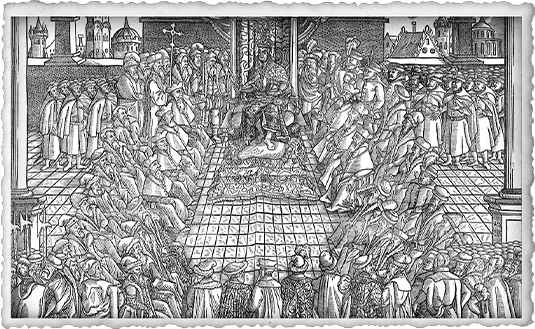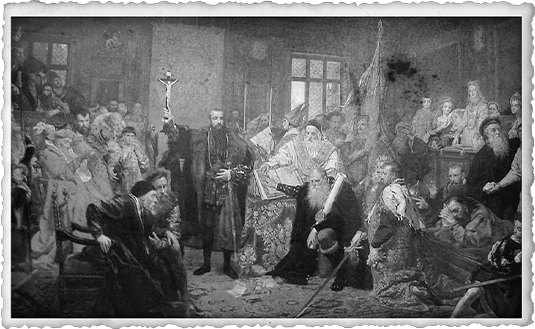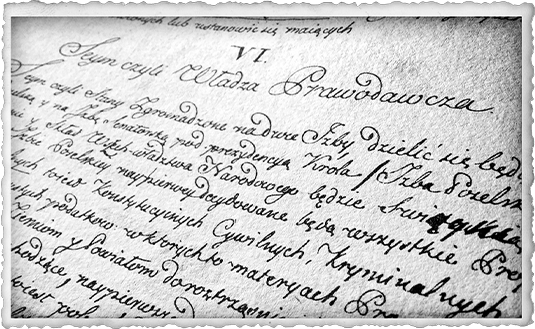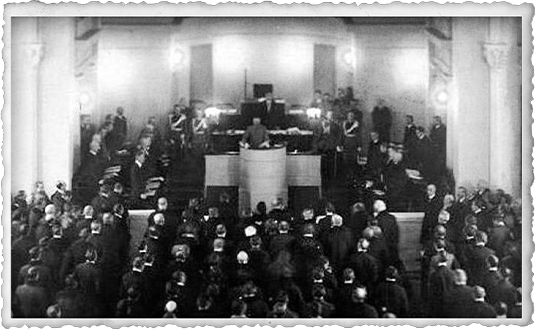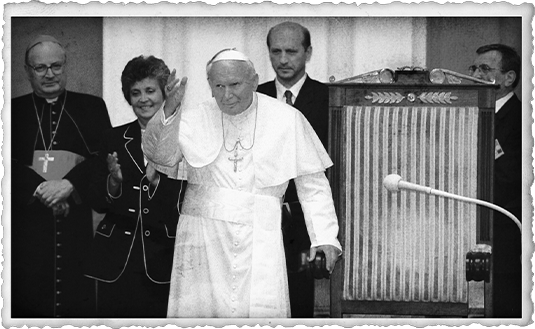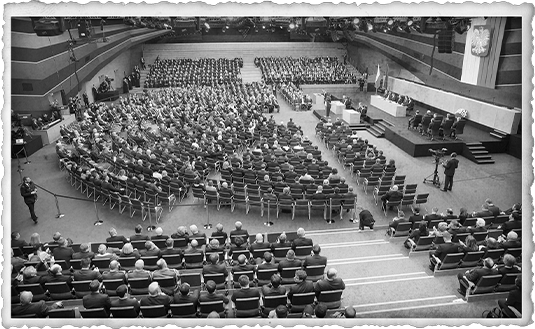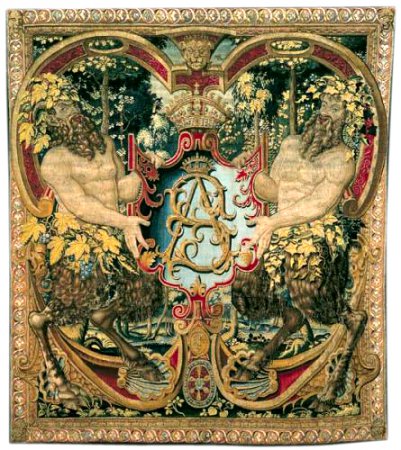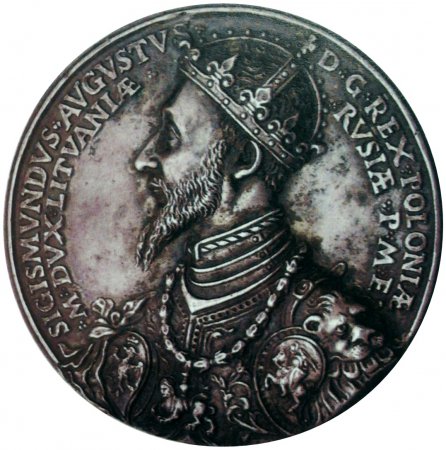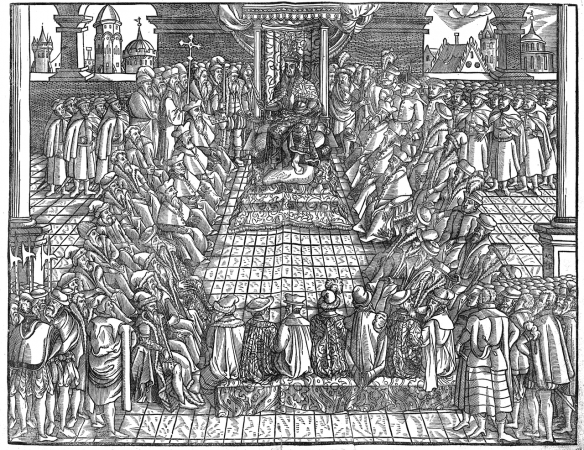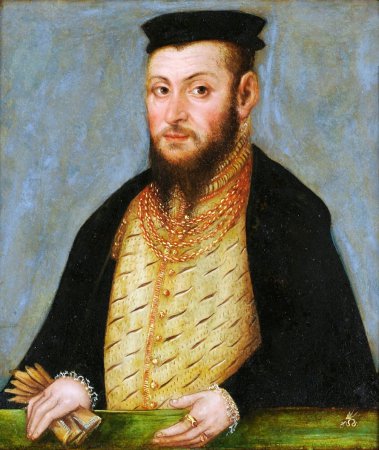The Reformation and the politics. Sejm in Piotrków 1552.
It was convened in October or November 1551 to take place in January 1552. The sessions began on 2 February and ended on 11 April 1552. The pre-sejm sejmiks were held in December 1551. Rafał Leszczyński was elected the marshal. The king’s intent, presented in writs sent from Vilnius, was to continue the execution of laws. The king also emphasised the need to take into consideration the external threats and enacting tax resolutions. The deputies shared various faiths and therefore the debate was dominated by problems of religious reformation. Threats were also brought up, which concerned jurisdiction of ecclesiastical courts, as heresy cases fell within their competences. The full agreement on the matter was not reached, because there was no consent to let the ecclesiastical court judge in heresy cases against burghers and peasants. The case of Stanisław Orzechowski also became a subject of the debate. Orzechowski was a widely known political writer, who - being a clergyman - simply got married, which became a serious ideological issue that time. The main problems, that is foreign policy and execution of laws, were not fully approached and were postponed until the next sejm session.
See: Ustawodawstwo zob. Volumina Constitutionum, T. 2, cz. 1, Design and layout prepared by S. Grodziski, I. Dwornicka, W. Uruszczak, Warszawa 2005, s. 35-46A. Sucheni-Grabowska, Zygmunt August król polski i wielki książę litewski 1520-1562 [Sigismund II August, the king of Poland and Grand Duke of Lithuania 1520-1562], Warszawa 1996;A. Sucheni-Grabowska, Sejm w latach 1540-1587 [1540-1587 Sejms], in: Historia sejmu polskiego [The history of Polish sejm], t. 1, Warszawa 1984, red. J. Michalski, s. 114-216.K. Koehler, Stanisław Orzechowski i dylematy humanizmu renesansowego [Stanisław Orzechowski and dilemmas of renaissance humanism], Kraków 2004, s. 246 i n.


